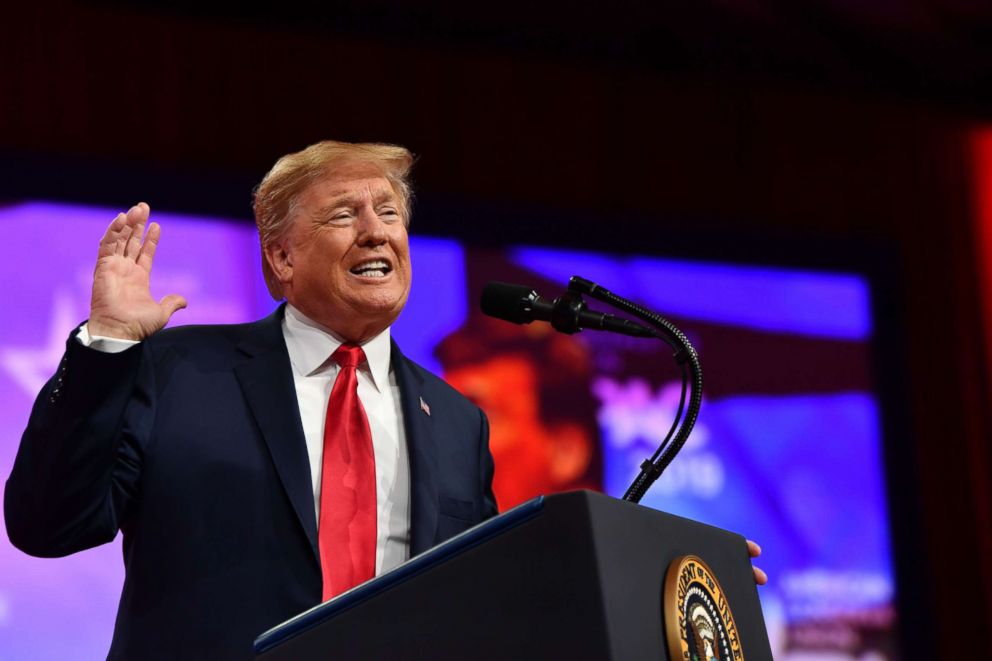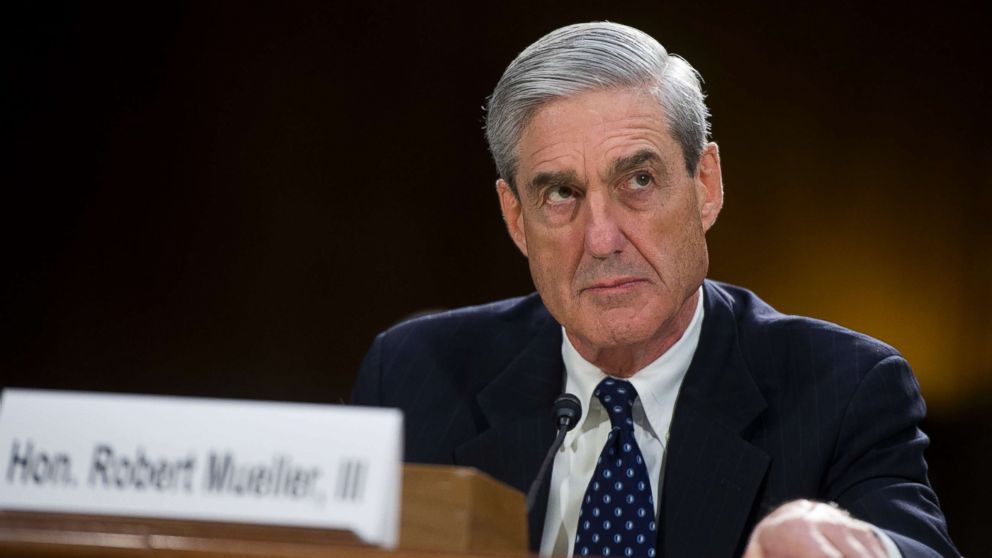[ad_1]
As special counsel Robert Mueller’s investigation heated up over the past 22 months, so, too, did President Donald Trump’s attacks — first on the probe itself and later, increasingly on Mueller personally.
Firing off almost daily tweets, making angry, dismissive comments in photo-ops or interviews — Trump’s remarks coalesced into a relentless strategy to discredit Mueller’s investigation, as he’s said countless times, as nothing more than a “witch hunt” and a “hoax.”
As of late, the president has sought to undermine Mueller, a former deputy attorney general and FBI director himself, in the American public’s eye by calling him a “man out of the blue,” appointed by an obscure Justice Department official, without confirmation.
Trump, on the other hand, won more than 63 million votes to score his position as president, he pointed out Wednesday.
In reality, Mueller was not appointed randomly, but by Deputy Attorney General Rod Rosenstein because Trump’s then-attorney general, Jeff Sessions, recused himself due to conflict of interest.
It’s been a long two years for all involved, and perhaps no more than for Mueller, who is in charge of an investigation that — despite the president’s attempts to paint it as unfounded — began with the president’s own decision to fire then-FBI Director James Comey while he headed an investigation into possible Trump campaign’s ties to Russia.
According to a New York Times investigation, Trump attacked Mueller and the Russia investigations more than 1,100 times over two years — with the vast majority of the criticism coming in the last six months.
The president consistently denies any collusion. He repeatedly calls it accuses the “17 Angry Democrats” he claims work for Mueller of bias.
Bob Mueller (who is a much different man than people think) and his out of control band of Angry Democrats, don’t want the truth, they only want lies. The truth is very bad for their mission!
— Donald J. Trump (@realDonaldTrump) December 3, 2018
Sometimes, like a game of pinball, the president’s takes bounced between treating Mueller with respect and then derision.
There was the Mueller who would be “fair,” who Trump was “looking forward to talking to” — and now, there’s the Mueller who ran a probe that the president described as “bulls—t” intended to take him down.
Has Trump’s attack strategy worked?
In January, half of Americans said they either had “just some” confidence or none at all that the Mueller report will be fair and evenhanded, and 43 percent say they have at least a good amount of confidence in its fairness, according to polling conducted by ABC News and the Washington Post.
Along partisan lines, the trust is more divided. 62 percent of Democrats trust Mueller, but from there it slides to 40 percent among political independents and just 22 percent among Republicans.
At the same time, Americans overall still back Mueller’s probe by 63-29 percent. Fifty-two percent support it strongly.
 (Nicholas Kamm/AFP/Getty Images) President Donald Trump speaks during the annual Conservative Political Action Conference (CPAC) in National Harbor, Md., March 2, 2019.
(Nicholas Kamm/AFP/Getty Images) President Donald Trump speaks during the annual Conservative Political Action Conference (CPAC) in National Harbor, Md., March 2, 2019.The attacks on Mueller are unlikely to actually change anyone’s views, said Dartmouth College public opinion professor Mia Costa. But political science is clear: people take cues from politicians in charge.
“Public trust in the investigation was always going to be divided along partisan lines, with Republicans opposing it more than they support it and vice versa for Democrats,” Costa said.
“However, consistent rhetoric about the investigation could deepen the partisan divide on the issue; people take cues from political elites and the more it is on the public’s consciousness, the more it becomes a salient issue to feel strongly about,” she said.
So far, Mueller has indicted 34 people and three Russian business entities. He’s scored seven guilty pleas and five people charged have been sentenced to prison.
The Rigged Russian Witch Hunt goes on and on as the “originators and founders” of this scam continue to be fired and demoted for their corrupt and illegal activity. All credibility is gone from this terrible Hoax, and much more will be lost as it proceeds. No Collusion!
— Donald J. Trump (@realDonaldTrump) August 15, 2018
Trump has reacted by discounting the charges as biased, by skirting the reality of the charges or by distancing himself entirely from people that worked with him directly as “people that had nothing to do with [him.”
He has called many of the people indicted “bloggers from Moscow” — not Russian hackers or members of a troll farm aimed at undermining the 2016 election, which is what they have been charged with.
“Or they were people that had nothing to do with me, had nothing to do with what they’re talking about, or there were people that — that got caught telling a fib or telling a lie,” Trump said in an interview with CBS’ Margaret Brennan in February.
Of the people who have been charged, titles include Trump’s former campaign chairman, his former national security adviser and his former personal attorney, who was also a longtime fixer for the president.
But at the same time the president describes his grievances, he’s also called for the report to be released — as have most Americans, according to polling.
“Let it come out, let people see it,” Trump told reporters Wednesday, while simultaneously calling the report “ridiculous.” A few days before, he similarly called for the report to be public, saying “I don’t mind.”
“Let’s see whether or not it’s legit,” the president said Wednesday.
But with a divided electorate of American voters, it’s hard to say Trump’s rhetoric reaches those who weren’t listening to begin with.
[ad_2]
Source link

